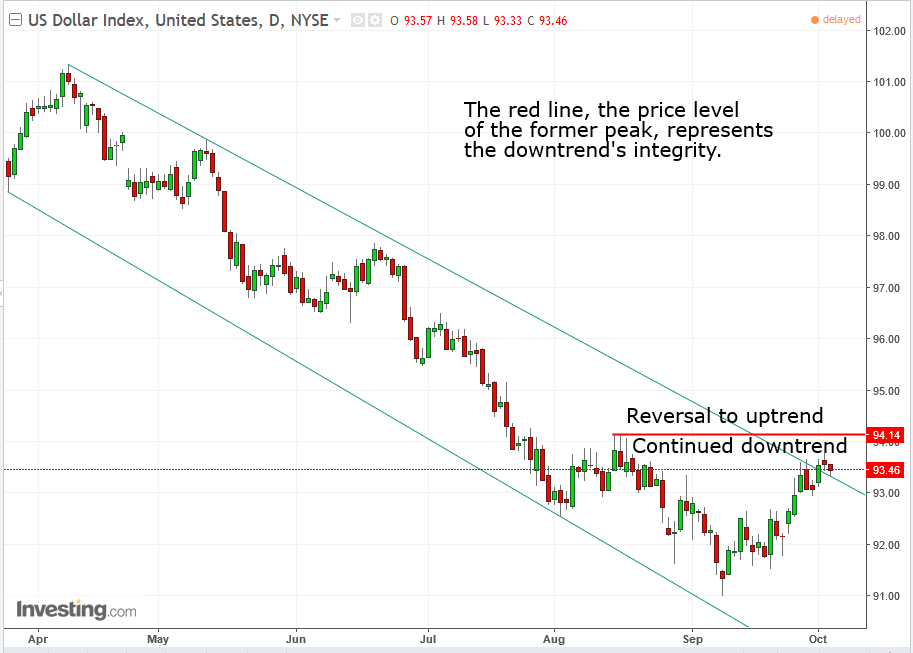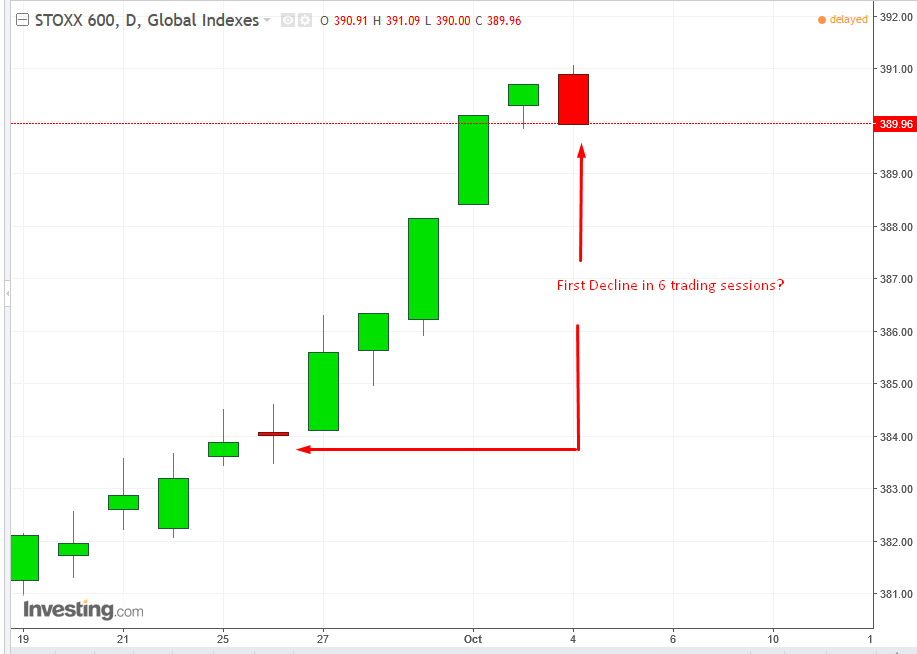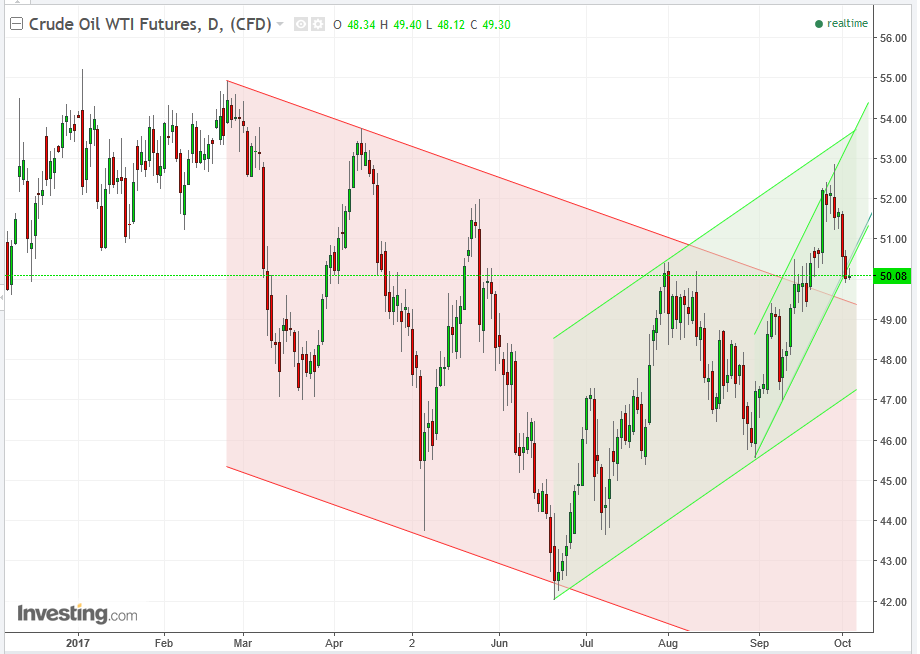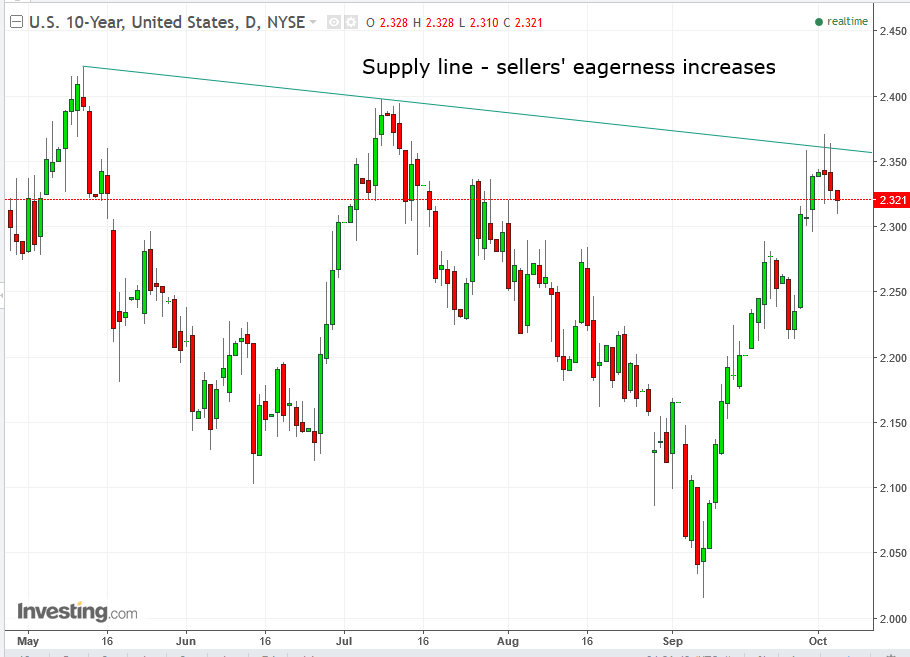by Pinchas Cohen
Key Events
The S&P 500 Index advanced for a sixth day yesterday, closing at yet another record high, as car sales provided a boost to industrial shares. Treasury yields and the dollar, however, turned lower, as the USD’s longest, biggest rally since February is stalling for a fifth trading-session.
Fundamentally, traders are waiting for clarity on two political uncertainties:
- The benefits – indeed the feasibility – of President Donald Trump’s tax reform plan, and
- Who will the President appoint as the next Fed Chair
The apex of both will determine the trajectory for the greenback going forward. Last week, the market narrative held that Kevin Warsh, an ex-Fed board member who criticized the Fed for overreaching on monetary policy, was the frontrunner given that his position echoes Trump’s campaign rhetoric. A more hawkish Fed Chair always leads to more bullish market sentiment.
Now, reports are that Fed Governor Jerome Powell—who tends to vote in sync with current Chair Janet Yellen—has been edging up to the top of the list. This shift, in addition to tax reform hitting a political brick wall has stopped the dollar dead in its tracks.

Technically, the currency is pressured by rising shorts, as we expected, here, as it reached the “supply line,” or the bottom of the falling channel since April. We repeated our warning here, at the second attempt of the price to break through the channel top. The first attempt last Thursday resulted in a bearish engulfing pattern, an expectation of another layer of supply, which would increase pressure on the USD. Sure enough, on Friday, the dollar was subject to the highest level of shorts in five years.
Global Financial Affairs
Stocks in Hong Kong extended yesterday’s rally on optimism about monetary loosening in China. Japanese stocks remained flat, and Australia's major index declined.
The MSCI All-Country World Index edged up, Germany’s DAX advanced 0.2 percent and the UK’s FTSE 100 crawled higher.

Still, the Stoxx Europe 600 erased an earlier advance and declined by 0.17 percent, as of 4:23 EDT. If it were to close in the red, it would be the first decline for the index after a five-day advance.

WTI crude oil attempted an advance but settled at a two-week low, ahead of US inventory data, right on the bottom of the short-term uptrend line, or bottom of the rising channel, since August 31, which is itself within a longer, larger rising channel since June 21.
The Spain's stock market dropped, after the country’s king, Felipe VI, censured Catalonia in a rare intervention.
Up Ahead
- Russia’s Vladimir Putin and OPEC Secretary General Mohammad Barkindo speak today at an energy forum in Moscow.
- Today’s EIA data will probably show that gasoline stockpiles only increased by 1 million barrel last week, according to a Bloomberg survey.
- September’s ADP jobs number will most certainly suffer a major negative impact from hurricanes Harvey and Irma. Consensus sees 135,000 new positions, but there’s potential for a negative surprise.
- Also this week: data on U.S. trade, factory orders and Friday’s September nonfarm payrolls report.
- China is due to report monthly foreign-exchange reserves Thursday.
- Minutes of the last ECB meeting are the European economic highlight this week.
Market Moves
Stocks
- The Stoxx Europe 600 Index declined 0.2 percent as of 9:26 London time (4:26 EDT).
- The MSCI All-Country World Index rose less than 0.05 percent.
- The U.K.’s FTSE 100 Index climbed 0.1 percent to the highest in eight weeks.
- Spain’s IBEX fell 2.1 percent.
- The MSCI Emerging Markets Index jumped 0.4 percent to the highest in more than a week.
- S&P 500 Futures dipped 0.1 percent to 2,531.25.
Currencies
- The Dollar Index decreased 0.1 percent, paring a 0.25 percent loss.
- The euro increased 0.2 percent to $1.1764.
- The British pound advanced 0.1 percent to $1.3256.
- The Japanese yen gained 0.3 percent to 112.56 per dollar.
Bonds

- The yield on 10-year Treasuries decreased less than one basis point to 2.32 percent.
- Germany’s 10-year yield dipped one basis point to 0.45 percent.
- Britain’s 10-year yield advanced less than one basis point to 1.356 percent.
Commodities
